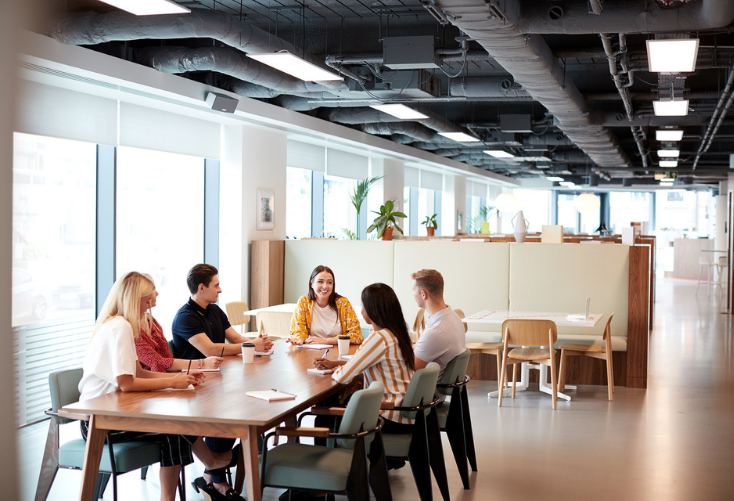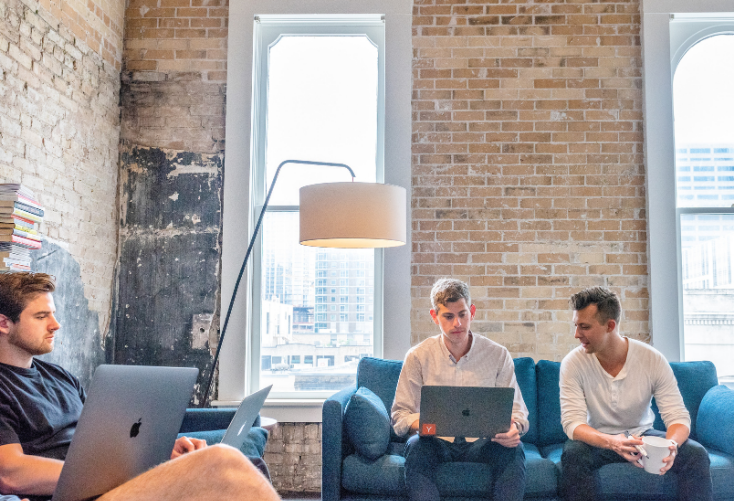Hand selected flexible workspace news from the most reliable sources to keep you ahead of the pack. We find all the latest news, so you don’t have to. Morning and afternoon updates. Stay in the know.
Here’s what you need to know today:
- Colliers: Flexible Space Set For Continued Growth NEW
- The Importance Of Health And Safety In The Workplace NEW
- Demand Grows For Co-Living Despite Pandemic NEW
- Knotel Could Cut Flex Office Portfolio By 60%
- From Hotel Rooms To Event Spaces, The WFH Alternatives Are Endless
- 3 Initiatives To Promote Wellness At Work
Colliers: Flexible Space Set For Continued Growth
Despite questions and concerns over the future of the office, new research from Colliers International suggests the flexible workspace market is set for continued growth.
Currently, flexible space accounts for 25% of total office inventory worldwide. However, the report predicts that supply is set to grow as much as two to three times over the next five years.
What’s driving this growth?
Corporate demand for one, as large firms look to decentralize their teams and make use of smaller flexible office locations. As such, the report notes increased demand for flexible space in secondary and tertiary markets, as occupiers seek to adopt a hub and spoke model and avoid congested city centers.
As for the future? A survey by Colliers found that 90% of occupiers believe that demand for flexible office space will only increase. However, for this to happen, most respondents believe this would require greater flexibility in traditional lease structures.

The Importance Of Health And Safety In The Workplace
Employers must make sure that their workplace’s health and safety meet the legal requirements.
Workplace safety refers to the working environment of a business and covers all the individual factors that impact employees’ health, wellbeing, and safety.
This may include:
- Unsafe working processes or conditions
- Environmental hazards
- On-site violence
- Drug and alcohol abuse
- The appropriate use of tools
- Making crisis exits easily accessible
- The use of mechanical assistance
- Reducing job-related stress
Among the rules, employees should be warned about potential hazards, have training to avoid risks, and given a means to file a confidential complaint.
Employers need to take a proactive approach to dealing with health and safety concerns, maintain accident records, and more.
Why is workplace safety important?
Above all, it helps keep everyone in the workplace safe and in good health. It’s also a legal requirement, and employers have the responsibility to ensure the company remains compliant to avoid legal problems further down the line.

Demand Grows For Co-Living Despite Pandemic
Despite the ongoing pandemic, demand continues to grow for co-living, according to Cushman & Wakefield’s new report ‘Coliving During Covid-19’.
In turn, this is attracting interest from investors as coliving grows and scales.
Co-living, in which residents share houses and apartments while retaining their private personal spaces, saw a sharp decline in rent and occupancy when the pandemic struck.
However, in the past two months, there has been a rebound.
“The sustained strength of coliving through the current pandemic can be attributed to what our customers have been saying for years. A home needs to provide a sense of community and add value to everyday life,” said Noah Gottlieb, CEO of The X Company.
“If owners can continue to deliver on that promise, coliving will continue to be successful agnostic of market conditions.”

Knotel Could Cut Flex Office Portfolio By 60%
Global flexible office provider, Knotel, is considering cutting back its portfolio by as much as 60%, according to reports, due to ongoing difficulties during the pandemic.
The company has suffered numerous challenges including staff redundancies, lawsuits, and threats of eviction due to unpaid rent.
By reducing its portfolio, Knotel’s intention is to lower its rent obligations from $15 million per month to $2 million, and lift its North American revenue.
The company is also said to be reassessing its business model, and looking to shift to a more operator-friendly profit-share management agreement.

From Hotel Rooms To Event Spaces, The WFH Alternatives Are Endless
Remote work is here to stay. Or at least, hybrid remote work is likely to become an integral part of workplace strategies going forward.
But there are still important questions to answer and challenges to overcome. Like, is home-based remote work sustainable? If our homes become our office, what are the long term consequences on wellbeing? Who is going to pay for the household utility costs?
There is also an imbalance, as not every home has adequate space for a long-term work environment.
The solution could be right outside our front doors. Rather than expecting people to transform their homes into offices, a work near home approach could be far more comfortable and productive.
And there are plenty of spaces that are fit for the job.
Coworking is the obvious choice. But there are also many hospitality venues that would value the extra footfall, like hotel rooms, event spaces, and bars or restaurants during daytime hours.
This approach will help workers preserve their homes for relaxation and family time, and set the foundation for a long-term and sustainable flexible working model.

3 Initiatives To Promote Wellness At Work
Amid the coronavirus pandemic and heightened concerns over health and wellbeing, it’s more important than ever to pay close attention to mental health at work.
There are 3 measures that companies and managers should address to help create an open, supportive environment:
- Focus on creating an environment in which people feel confident talking openly about their mental health. Regular check-ins, one-on-ones and conducting frequent workload reviews can all help to monitor an individual’s wellbeing and help prevent stress buildup.
- Provide mental health training courses for managers. This not only raises awareness of the importance of individual wellbeing, but importantly, enables them to recognise early warning signs and provide the necessary support.
- Thoughtful benefits such as free or discounted gym memberships, outdoor team building events or meditation and yoga classes can help to improve wellbeing and show employees that they are valued by the organisation.
With health and wellbeing under the spotlight, now is a critical time to put processes in place to help your employees and ensure they receive the support they need during these challenging times.




 Dr. Gleb Tsipursky – The Office Whisperer
Dr. Gleb Tsipursky – The Office Whisperer Nirit Cohen – WorkFutures
Nirit Cohen – WorkFutures Angela Howard – Culture Expert
Angela Howard – Culture Expert Drew Jones – Design & Innovation
Drew Jones – Design & Innovation Jonathan Price – CRE & Flex Expert
Jonathan Price – CRE & Flex Expert













